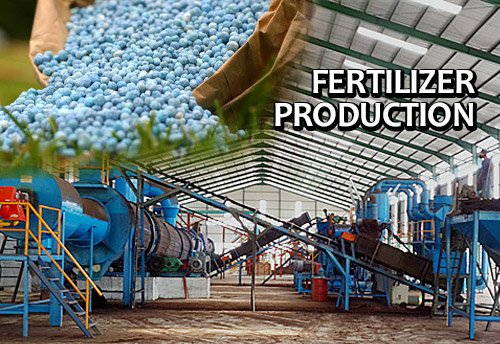Begin a Chlor-alkali Plant and get all licenses and allows with master help from Enviroxperts.
Package Inclusions :-
Chlor-alkali Plant: An Outline
Chlor-alkali is a cycle broadly used to create chlorine, burning pop, and chlorine and sodium-based items like sodium hypochlorite, chlorosulphonic corrosive, hydrochloric corrosive blanching power, polyaluminium chloride, hydrogen gas, chlorinated paraffinetc at a modern scale. The cycle utilizes sodium chloride arrangement (saline solution). The Chlor-alkali industry delivers a scope of synthetic substances by electrolysis of salt arrangements, and right now, 95% of chlorine creation overall is finished by this industry. Chlorine is generally utilized in the amalgamation of chlorinated natural mixtures. Vinyl chloride monomer (VCM) for combining polyvinyl chloride (PVC) stays the principal driver of the Chlor-salt assembling fragment. The essential purchasers of scathing soft drink in India are materials (21%), alumina (12%), inorganic synthetic substances (13%), mash and paper (8%), cleansers and cleansers (7%). Burning pop, or sodium hydroxide, addresses an exceptionally flexible substance base that tracks down its direction into the creation of mash, paper, and materials, as a water treatment specialist and cleansers and cleansers. The Chlor-salt cycle assumes a dominating part in the business on the grounds that its items are utilized in many major modern compound cycles. In any case, Chlor-antacid plants are among the most noteworthy energy-consuming cycles with poison outflows that genuinely influence the climate. In this review, you will find all legalities related with setting up a Chlor-salt unit and the necessities expected to begin a business in the business. To start with, how about we grasp the various applications areas of acidic pop and chlorine.
| INDUSTRIAL USE | PRODUCTS OR APPLICATIONS |
| Production of metals and resource | Used in Alumina refining, propylene oxide, polycarbonate resin, epoxies, synthetic fibres, soaps, detergents, rayon and cellophane production |
| Pulp and paper industry | Caustic soda is used for pulping of wood chips. Chlorine and compounds are used in wood pulp bleaching in paper industry. |
| Petroleum and natural gas | Caustic soda is used as a drilling fluid. |
| Manufacture of organic chemicals | Chlorine is used for making ethylene dichloride, glycerin, glycols, chlorinated solvents and chlorinated methane. |
| Plastic industry | Used for making plastics, most notably polyvinyl chloride (PVC), used extensively in building and construction. |
| Pesticides | 96 per cent of all pesticides are produced using chlorine |
| Industrial solvents | A variety of chlorinated compounds are used as industrial solvents, including the main ingredient used in dry cleaning. |
| Water treatment | Chlorine is used in 98 per cent of the water treatment plants in the world |
| Pharmaceuticals | 85 per cent of all pharmaceuticals use chlorine |
| Other relevant applications | Domestic bleaches, flame-retardants, food additives, refrigerants, insulation, computer chip manufacturing and hospital disinfectants. |
How is Caustic Soda produced
Caustic soda is delivered economically by the Chlor-soluble base cycle, which is the electrolysis of salt of sodium chloride. Here in this cycle, the term ‘chlor’ represents the item Chlorine, and ‘soluble base’ is for Sodium hydroxide. The response follows the accompanying way.
- A Chlor-alkali unit, during the creation of burning pop, yields chlorine and sodium hydroxide in almost equivalent sums, while hydrogen is delivered as a side-effect.
- The Membrane cell process for the Chlor-alkali Plant utilizes saline solution and a layer cell with positive and adversely charged cathodes. The anode oxidizes the chloride particle, which loses an electron to turn out to be free chlorine gas. The hydrogen particles are drawn in at the cathode and produce hydrogen gas.
- The semi-porous film permits the sodium particles to gather into a subsequent chamber, where they respond with water to create sodium hydroxide.
There is waste generation from the Chlor-alkali plant.
Chlor-alkali Units are ordered as a red class industry as this industry is profoundly energy concentrated and creates different sorts of waste. This modern area is one of the 17 ‘Exceptionally Contaminating Enterprises. Such plants have various segments like NaOH, Cl2, SBP and so on, that discharge harmful effluents. Moreover, fuel utilization is likewise on the higher side. Coming up next is the waste produced from the Chlor-soluble base Plants that will require appropriate administration.
Solid wastes: These are waste produced from the stomach cell plants and the film cell plants. The significant waste stream from the cycles comprises of brackish water mud, which is the muck that is delivered from saline solution refinement. Muck additionally contains different mixtures, normally magnesium, calcium, iron, and other metal hydroxides. Strong squanders from mercury cell plants incorporate spent graphite from decomposer cells and spent acidic filtration cartridges from the filtration of harsh soft drink arrangement. Mercury cell plants likewise produce some mercury in strong muck waste.
Wastewater: During the Particle trade process, wash water, cell wash water, saline solution cleanse and so forth, are delivered that should be appropriately treated.
Hazardous wastes: Chlorinated hydrocarbon squander from the decontamination step of the stomach cell process, spilled mercury from sumps and mercury cell wastewater are a couple of the dangerous squanders produced from the Chlor-salt plant.
Licenses required by the Chlor-alkali Plant
The following is the list of licences and approvals needed by a Chlor-alkali Unit from the central and state government
Pollution NOC/ Consent Certificate
As the plant falls under the red class ventures, it will require a Contamination NOC declaration from the individual State Pollution Control Board (SPCB) / Pollution Control Committee (PCC). The document required for the two stages i.e.consent to establish (CTE) and Consent to Operate (CTO) are
- Correctly filled application form of the concerned SPCB
- Signed undertaking
- Site or layout plan with a roadmap
- Detailed project report
- Details of the product manufacturing processes.
- Proof of installed machinery, the capital cost of the land, building etc.
- Water balance, water source and required quantity
- Land ownership documents
- Industry registration documents
- Consent fee (as applicable)
- Any other document mentioned in the application
Environmental Leeway
The Chlor-alkali project will fall under Classification ‘A’ of thing 4(d) of the Timetable of Environment Impact Assessment (EIA) Notice, 2006 and requires examination at Focal Level by Expert Appraisal Committee (EAC).. The rundown of records expected by the undertaking defender at this stage incorporates
- Detailed Project Description (project’s name, location, proposed area breakup, water requirement, waste generation etc.)
- Site/ Layout plan
- Proof of installed machinery
- Proof of Land Ownership
- ID proof of Signatory
- Quality test Report (if applicable)
- Proof of mitigation options adopted
- Proof of Electricity and water connection
Factory’s Licence
The Chlor-alkali Plant should enroll itself under the Industrial facilities Demonstration of 1948. The standard reports required for this permit are
- Duly filled in the application form
- Application Fees
- Existing building plan
- List of Partners or directors with their addresses.
- NOC from other partners / Board Resolution under sections 2(n) and 7 of the Factories Act, 1948.
- Proof of Occupier as Director/ Proprietor / Partner
- Proof of sanctioned load of electricity.
- Proof of occupancy.
- Flow chart of the manufacturing process.
- List of raw materials used in manufacturing.
- List of machinery installed or any such other particulars as the Chief Inspector/Director may require.
Additional Licences and Authorisations required for setting up Chlor-alkali plant
- Business Registration
- ISI certification (Regional Office of the Bureau of Indian Standards (BIS))
- MSME Registration (from the centralised online portal)
- Fire NOC (from State Fire department)
- Hazardous Waste Management Authorisation/ Membership of TSDF facility
Market Potential and Extent of the Chlor-alkali Manufacturing Units
Around 37 caustic soda units are spread across India with an all out introduced limit of 3.20 MMT per annum, with the best 10 chlor-salt plants creating around 60% of the whole result. Introduced limit with regards to harsh pop and chlorine, which is co-delivered, has developed at a CAGR of 7.8% somewhere in the range of FY16 and FY20.
Numerous chlor-alkali plants are found along with PVC establishes that utilization the vaporous Cl2. Universally, 40% of Cl2 from the chlor-antacid cycle is used in PVC creation, while in India, it is 6.64%. India, be that as it may, is supposed to show fast development in the scathing soft drink market because of expanded industrialisation, urbanization, and populace and the rising interest because of these elements.
Around 60% of the complete new limit over the most recent couple of years has been from western India, where the more extensive chemical industry is found. Generally, Gujarat represents around 55% of the complete introduced limit with respect to scathing pop.
Export Market: Albeit the business’ center is essentially homegrown, just 3-5% of absolute creation is traded (chiefly as chips). In any case, trades have been filling in the beyond couple of years. Quite a bit of it is bound for nations where the substance business is lacking. Acidic soft drink drops are imported to make fundamental products and material handling. The greater part of the import is focused on to Africa, while a few little amounts go to a few South East Asian nations, like Indonesia, Vietnam and Myanmar. In FY19, profit from send out were around 105 million USD.
How will Enviroexperts Assist You?
| A one-stop answer for Business | Complete Legitimate Help | Top tier client support |
| Our group of specialists give complete help to all legalities related with your Chlor-soluble base Plant arrangement. Our group contains area specialists from assorted fields who can design, oversee and help you in getting all permitting and consents. | Center around your business and leave all the issue of documentation and application for endorsements with us. We furnish extensive lawful help alongside our business arrangement bundles that are financially savvy and customized. | Our client relations leaders guarantee that our group of prepared legal advisors, CAs and CS settle your inquiries connected with business arrangement. In addition, we keep you refreshed with the progressions in unofficial laws concerning your business. |




